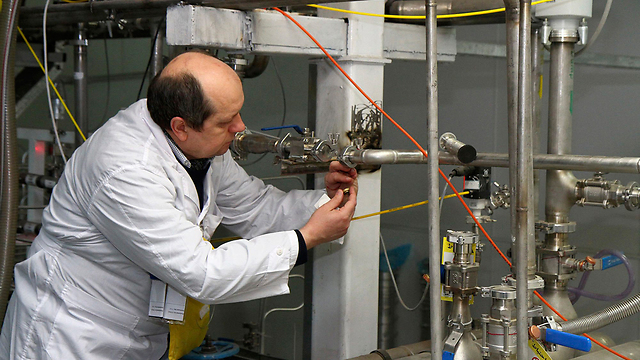Iran’s nuclear talks in Oman – a breakthrough?
Monday, 10 November 2014
Camelia Entekhabi-Fard/Al Arabiya
The nuclear talks in Oman mark the first time such a meeting has taken place outside the EU since the election of Iranian President Hassan Rowhani. Oman famously played a significant role in resuming secret contact between Iran and the United States almost two years ago when Mahmoud Ahmadinejad was still in office. With the Supreme Leader of Iran Ayatollah Khamenei’s approval, the talks continued and led to the first interim agreement being finalized in Geneva almost year ago. The deal was extended for another six months in Vienna last July and disappointment is now clear as Iran and the United States have admitted that gaps remain. “The U.S. and Iran are both seeking a nuclear breakthrough before the deadline”Now, Oman has decided to host Iran and the United States again in another attempt to mediate between them.
EU sidelined?
The EU countries involved in the talks have complained due to their not being present at the Omani talks. However, they will join the two countries on Nov. 11 in Muscat. It is clear that these talks will see Iran and the United Sates bargaining on how many centrifuges Iran can have and the level of enrichment it will be allowed to pursue. The talks will perhaps also see the two powers arguing over sanctions that Iran wants revoked once the deal has been agreed. With less-than-stellar ties since the Iranian revolution, both countries took major steps by holding bilateral talks about the nuclear issue even if it does not suit hardliners on each side. The talks in Oman are a sign of the seriousness of the current stage of negotiations and the possibilities of some agreement being reached before the deadline.
Trusting Iran
Also, having the talks in Oman has enabled the presence of dozens of Arab journalists to come to Muscat to get firsthand insightful information about the talks. Most of Iran’s Arab neighbors are still worried that the nuclear deal may be reached between Iran and the United States. Their concern stems from the lack of trust of the regime and also lack of trust regarding the peaceful nature of Iran’s nuclear program. “Hostility with Iran does not serve Arab interests,” Oman’s Foreign Minister Yousef Bin Alwai Bin Abdullah told Asharq al-Awsat newspaper. “So it is not in the interests of we, the Arab Gulf, to unite against a state like Iran. Why? Because this would have huge negative repercussions on all parties. So this diversity in relations with Iran perhaps serves both sides. We do not believe that we need any form of conflict, we trust in dialogue when it comes to our foreign relations.” There are many anxious players who want to hinder the talks. The emergenceof President Barack Obama’s secret letter to Iran’s Supreme Leader Ayatollah Khamenei just a couple of days before the Oman talks was one of those destructive attempts. These days, Republicans are Obama’s major criticizer at home and disapprove anything he has done and at the same time the U.S. closest allies like Israel tighten its belt to prevent the nuclear deal.
The U.S. and Iran are both seeking a nuclear breakthrough before the deadline in spite of all these destructive attempts to jeopardize the talks and the Oman talks are a success on the path to this breakthrough. Whatever Iran and the U.S. agree on in Oman, the negotiators are willing to meet in Vienna on November 18 to officially declare how they will be moving forward.




















